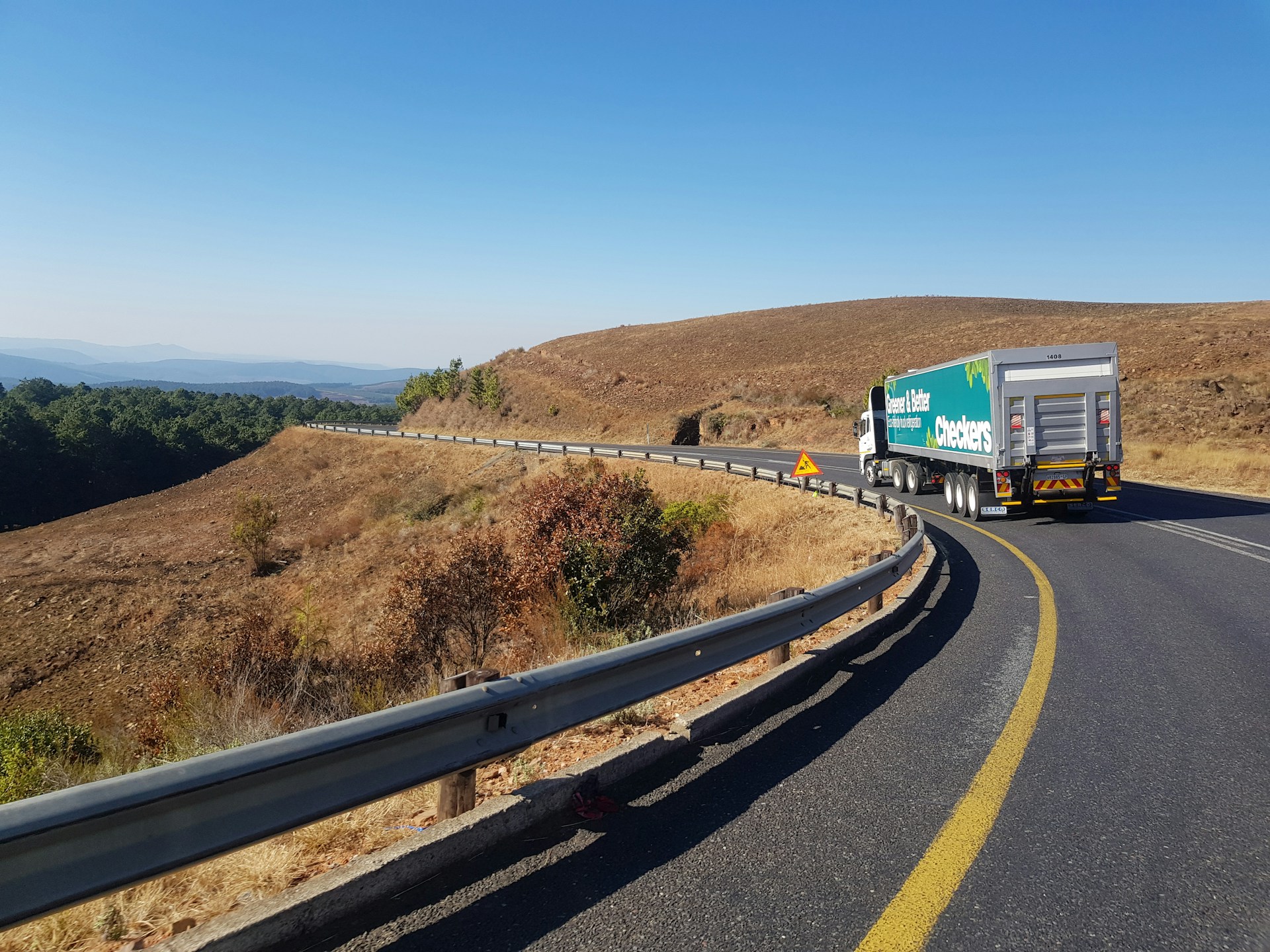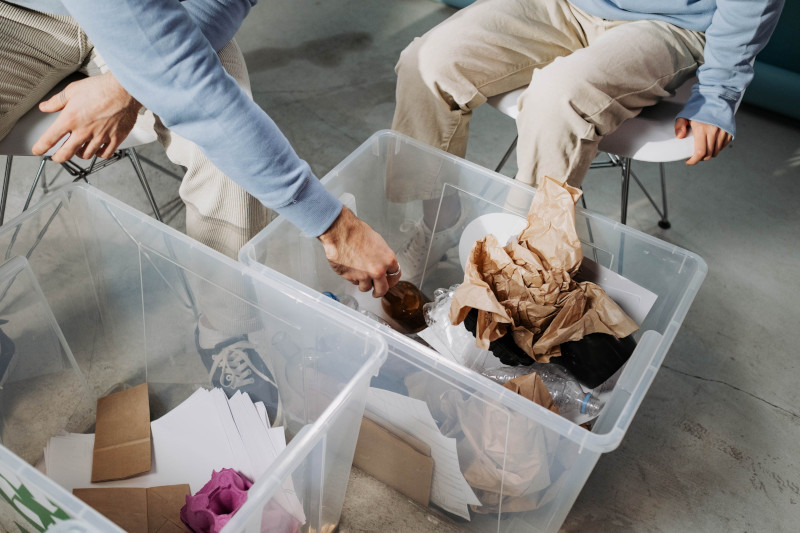Moving 101: How to Navigate an Interstate Move Successfully
There are many things to consider and plan for when it comes to moving to another state, but with proper preparation and organization, you can make the process much easier and less daunting. Consider this to guide you through an interstate move successfully with helpful tips and expert advice to help you settle into your new home easily.

1. Research and Prepare
Before you begin the moving process, it's essential to do some research and prepare accordingly. This will help you get acquainted with your new location and ensure everything goes smoothly during your move. Some critical steps to take include:
- Start by researching your new location: Get familiar with your new surroundings as much as possible. Research the area, its amenities, climate, and any specific regulations or requirements you need to know before moving.
- Create a moving checklist: Break down the tasks into smaller, manageable steps to stay organized during the moving process. This can include decluttering your home, packing your belongings, and arranging transport.
- Set a budget: Determine how much you can afford to spend on your move and allocate funds accordingly. Remember to factor in things like the cost of hiring movers, packing supplies, and any other expenses you may incur.
2. Hire Professional Movers
Hiring professional movers can make a huge difference in making your interstate move successful. They will be able to help you with the heavy lifting and provide valuable advice and guidance to help you navigate the moving process. Some things to consider when you compare interstate moving companies include their prices, credentials, and contract. Then you may want to:
- Get multiple quotes: Request estimates from at least three reputable moving companies to compare prices and services. This will help you find the best value for your money.
- Check their credentials: Ensure the movers you choose are licensed, insured, and have positive customer reviews. You can verify their credentials with organizations like the American Moving and Storage Association.
- Read the fine print: Carefully review the terms and conditions of the moving contract before signing. This will help you to avoid any surprises during the moving process.
3. Sort and Declutter
One of the most important steps you can take toward making your move successful is to declutter your belongings. Moving is an excellent opportunity to get rid of items you no longer need or use, which can help make your move more organized and less overwhelming. Some things to consider when sorting and decluttering include:
- Begin early: Start sorting through your belongings well before your move. This will give you enough time to sort through everything and ensure you only take what you need.
- Create three categories: Separate your items into "keep," "donate/sell," and "discard" piles. This will help you to keep everything organized and make it easier to dispose of unwanted items.
- Sell or donate unwanted items: Organize a garage sale or donate items in good condition to charity. This will help you eliminate undesirable items while also allowing you to help others in need.

4. Organize Packing
Packing is one of the most time-consuming aspects of moving, but you can make it much easier with the proper organization. Here are some tips for organizing your packing process:
- Gather packing supplies: Stock up on sturdy boxes, packing tape, bubble wrap, and packing paper. This will help you to keep everything organized during the packing process.
- Room-by-room packing: Start packing one room at a time, labeling each box with its contents and destination room. This will help to make the unpacking process much more manageable.
- Pack essentials separately: Prepare an "essentials" box with items you'll need immediately upon arrival, such as toiletries, bedding, and a change of clothes. This will help you to avoid having to unpack everything right away.
5. Notify Relevant Parties
It's essential to make sure that you notify everyone who needs to know about your move. This will help avoid issues with mail delivery, utilities, and other basic services. Some things to consider when notifying relevant parties include:
- Update your address: Update your address: Inform your employer, bank, insurance companies, and relevant utility providers about your upcoming move. This will help ensure you receive all important mail and services at your new address.
- Transfer medical records: Arrange your medical records to be transferred to new healthcare providers in your new location. This will ensure that you have access to the medical care you need.
- Inform friends and family: Share your new address and contact information with your loved ones. This will help ensure they can stay in touch with you after your move.
6. Take Care of Logistics
There are many logistical aspects to a move, and ensuring they're all taken care of is essential. Here are some things to consider when it comes to logistics:
- Forward your mail: Submit a change of address request with the postal service to ensure your mail is redirected to your new residence. This will help ensure you receive all vital mail at your new address.
- Transfer utilities: Arrange for the disconnection of services at your old address and the connection of services at your new address. This will help ensure you have gas, water, electricity, and other essential services at your new address.
- Cancel local subscriptions: Cancel any local subscriptions or memberships that won't be valid in your new location. This will help to avoid any unnecessary expenses.
7. Pack for Success
Packing your belongings correctly is crucial to a successful move. Here are some things to consider when packing:
- Protect fragile items: Use bubble wrap, packing paper, or clothes to cushion delicate items during transport. This will help to ensure that your delicate items arrive at your new address in one piece.
- Label everything: Clearly label boxes to indicate their contents and which room they belong to. This will help to make the unpacking process much easier.
- Take inventory: Create an inventory list of all your belongings to track what's being moved. This will help ensure all your belongings arrive safely at your new address.
8. Plan for the Move Day
The moving day can be stressful, but with the proper preparation, you can make it much easier. Here are some things to consider when planning for move day:
- Pack an essentials bag: Prepare a bag with important documents, medications, toiletries, and snacks for the journey. This will help ensure you have everything you need during the move.
- Check your vehicle: If you are driving to your new location, ensure your car is in good condition and ready for a long journey. This will help to ensure that you arrive at your new address safely.
- Double-check details Confirm the moving date and any necessary instructions with your chosen company. This will help to avoid any last-minute surprises on the day of the move.
9. Be Prepared Upon Arrival
When you arrive at your new residence, being prepared is essential. Here are some things to consider when you first arrive:
- Inspect your new home: Before unpacking, carefully examine your new residence for any damages and report them to your landlord or real estate agent. This will help to ensure that any issues are addressed promptly.
- Update your driver's license and vehicle registration: Visit your new state's Department of Motor Vehicles to update your information within the required timeframe. This will help to ensure that you comply with local regulations.
- Explore your new surroundings: Take some time to familiarize yourself with your new neighborhood and locate essential amenities. This will help you to feel more comfortable in your new home.
10. Settling In
Once you've arrived at your new home, making it feel like your own is important. Here are some tips for making your new residence feel like home:
- Unpack methodically: Start with essential items and gradually unpack and organize your belongings room by room. This will help to avoid feeling overwhelmed.
- Make your new space feel like home: Decorate and personalize your new residence to make it inviting and comfortable. This will help you to feel more comfortable in your new home.
- Meet your new neighbors: Introduce yourself to your new neighbors and take part in community activities to feel more connected. This will help you to feel like part of the community.
Final Words
A successful interstate move requires careful planning, research, and organization. By following these tips and expert advice, you'll be able to make your move smoother and less stressful. Good luck with your move.